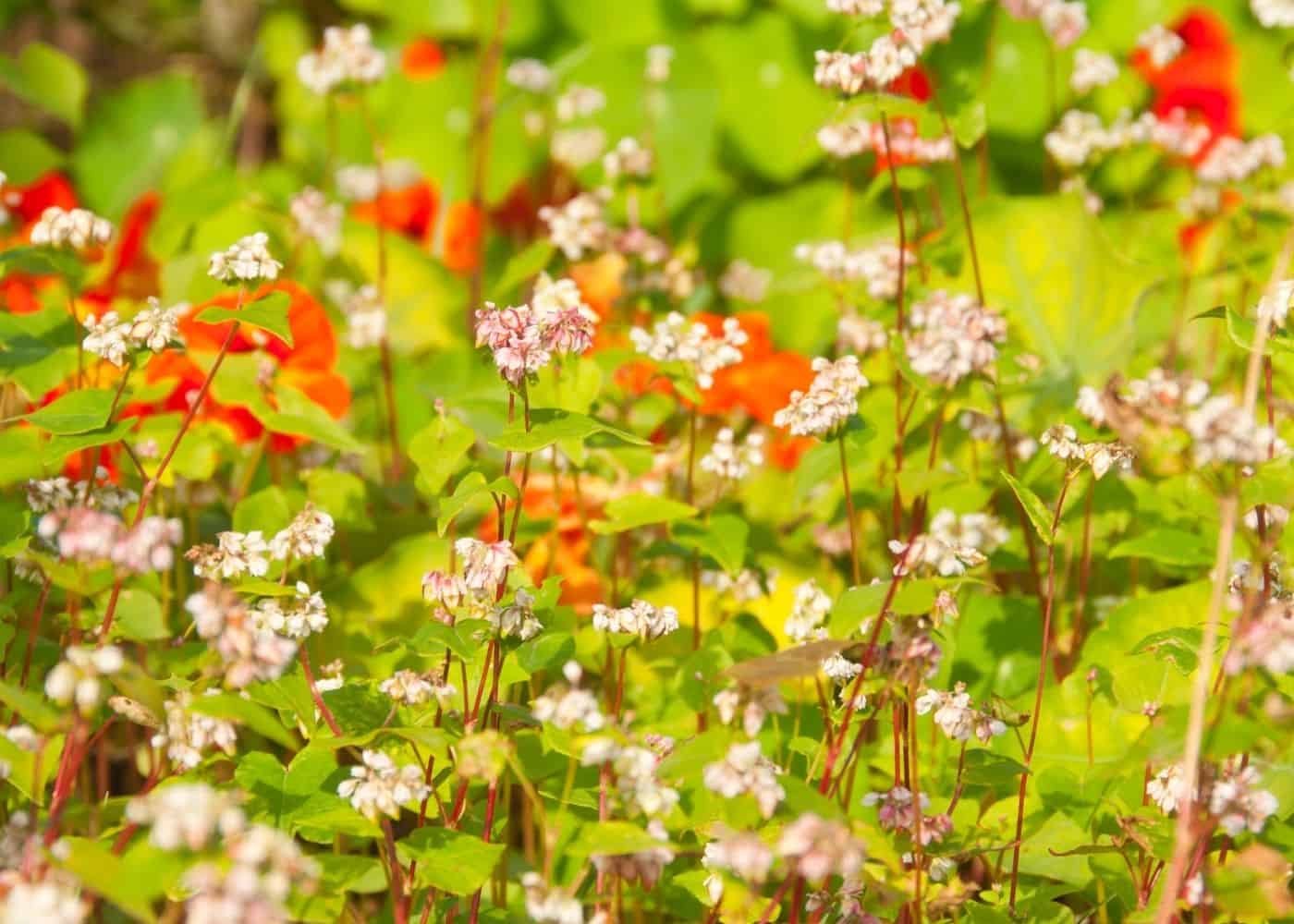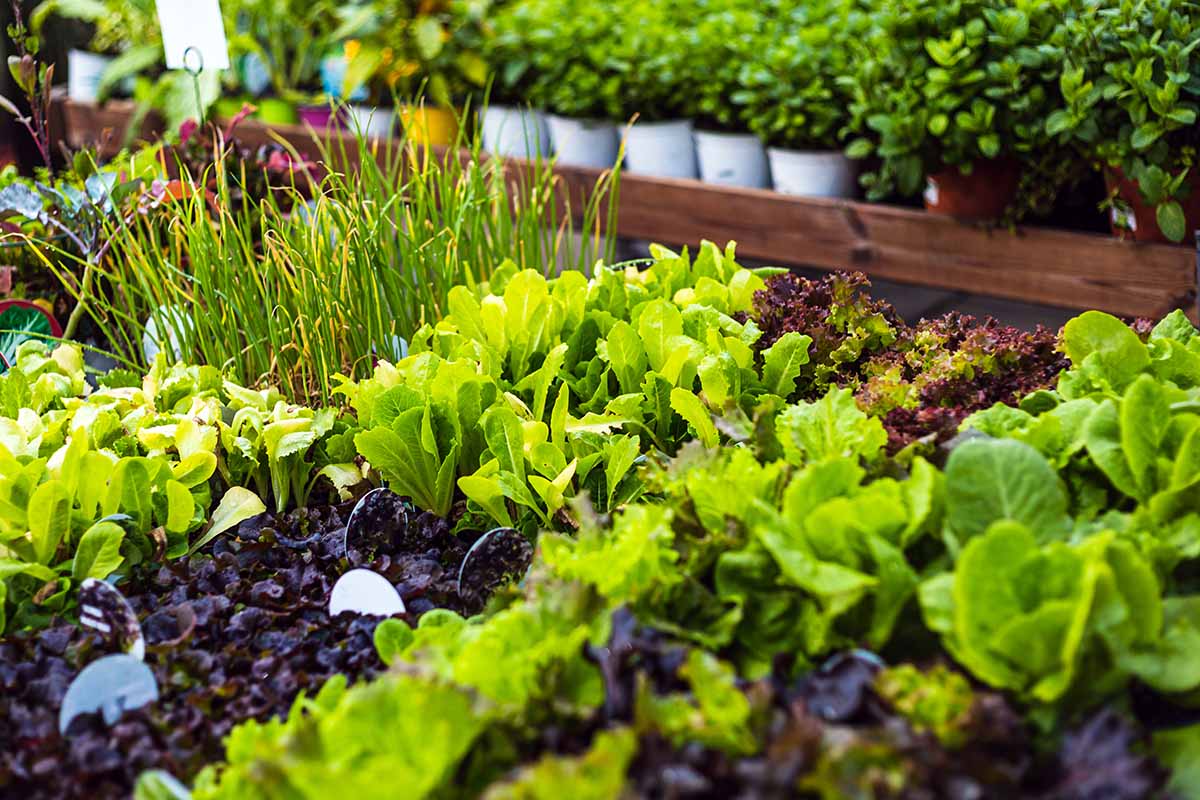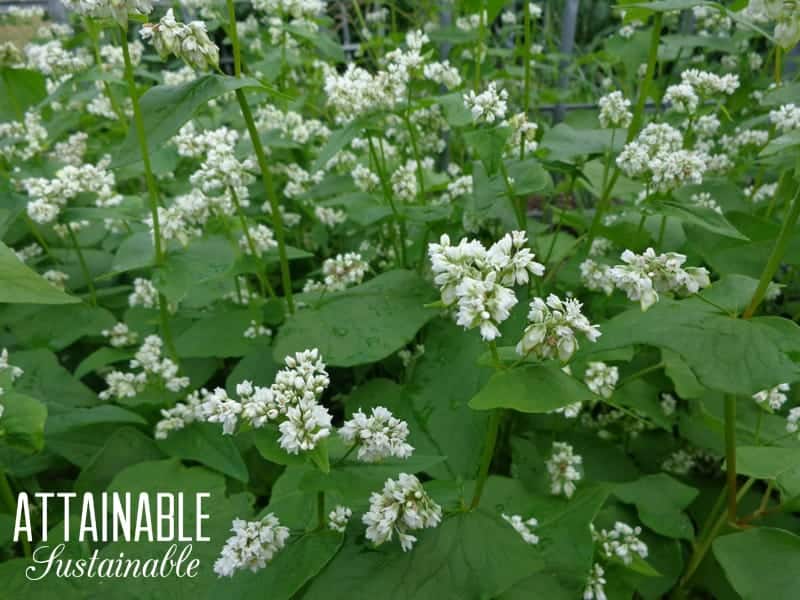Buckwheat Companion Plants: The Ultimate Guide
Title: Buckwheat Companion Plants: The Ultimate Guide
Introduction
Buckwheat is a versatile plant that can be grown for its grain, flour, or as a cover crop. It is also a popular choice for companion planting, as it can benefit a wide variety of other crops.
In this blog post, we will discuss the benefits of companion planting with buckwheat, as well as some of the best companion plants for buckwheat. We will also provide some tips on how to plant and care for buckwheat companion plants.
Benefits of Companion Planting with Buckwheat
There are many benefits to companion planting with buckwheat. Some of the most notable benefits include:
- Attracting beneficial insects: Buckwheat flowers are attractive to a variety of beneficial insects, including pollinators, ladybugs, and lacewings. These insects help to control pests and improve pollination, which can boost crop yields.
- Suppressing weeds: Buckwheat is a fast-growing plant that can quickly shade out weeds. This can help to reduce the need for herbicides and improve the overall health of your garden.
- Improving soil health: Buckwheat is a nitrogen-fixing plant, which means that it can help to improve the nitrogen content of your soil. This can benefit a wide variety of other crops.
- Providing ground cover: Buckwheat can be used as a ground cover to help prevent erosion and retain moisture. This can be especially beneficial in areas with hot, dry summers.
Best Companion Plants for Buckwheat
Some of the best companion plants for buckwheat include:
- Beans: Beans are nitrogen-fixing plants, which means that they can help to improve the nitrogen content of the soil. This can benefit buckwheat, as it is a nitrogen-hungry plant.
- Cabbage: Cabbage is a heavy feeder, and buckwheat can help to improve the soil quality for cabbage. Buckwheat can also help to deter pests that attack cabbage, such as cabbage loopers and cabbage moths.
- Carrots: Carrots are susceptible to a variety of pests, but buckwheat can help to deter these pests. Buckwheat can also help to improve the flavor of carrots.
- Melons: Melons are heavy feeders, and buckwheat can help to improve the soil quality for melons. Buckwheat can also help to deter pests that attack melons, such as cucumber beetles and squash bugs.
- Squash: Squash is a heavy feeder, and buckwheat can help to improve the soil quality for squash. Buckwheat can also help to deter pests that attack squash, such as squash bugs and cucumber beetles.
Tips for Planting and Caring for Buckwheat Companion Plants
When planting buckwheat companion plants, it is important to consider the spacing requirements of each plant. Buckwheat is a relatively tall plant, so it is important to give it enough space to grow. It is also important to plant buckwheat companion plants in full sun.
Buckwheat is a relatively low-maintenance plant, but it is important to water it regularly, especially during hot, dry weather. Buckwheat can also benefit from a side-dressing of compost or manure.
Conclusion
Buckwheat is a versatile plant that can be grown for a variety of purposes. It is also a popular choice for companion planting, as it can benefit a wide variety of other crops.
If you are looking for a way to improve the health and productivity of your garden, consider companion planting with buckwheat. With its many benefits, buckwheat can be a valuable addition to any garden.
Buckwheat is a versatile plant that can be grown for its grain, flour, or as a cover crop. It is also a great companion plant for other vegetables, as it helps to repel pests and attract pollinators.
Some good companion plants for buckwheat include:
- Tomatoes
- Peppers
- Beans
- Cucumbers
- Melons
- Squash
- Spinach
- Lettuce
- Carrots
If you are interested in learning more about buckwheat companion plants, I recommend visiting Garden Wiki. This website provides a comprehensive list of companion plants for buckwheat, as well as information on how to plant and care for this versatile crop.
FAQ of buckwheat companion plants
What are the best companion plants for buckwheat?
Buckwheat is a versatile plant that can be paired with a variety of other plants. Some of the best companion plants for buckwheat include:
- Nightshades: Nightshades, such as tomatoes, peppers, and eggplants, benefit from the nitrogen-fixing properties of buckwheat.
- Legumes: Legumes, such as beans, peas, and lentils, also benefit from the nitrogen-fixing properties of buckwheat.
- Cabbage family: Members of the cabbage family, such as broccoli, cauliflower, and Brussels sprouts, benefit from the pest-repelling properties of buckwheat.
- Carrots: Carrots benefit from the shade provided by buckwheat, which helps to keep the soil cool and moist.
- Sunflowers: Sunflowers and buckwheat are both tall plants that can be planted together to provide support for each other.
How do buckwheat companion plants benefit each other?
Buckwheat companion plants benefit each other in a variety of ways. For example:
- Nightshades: The nitrogen-fixing properties of buckwheat help to improve the soil quality for nightshades, which can make them more productive.
- Legumes: The nitrogen-fixing properties of buckwheat also benefit legumes, which can help to improve the soil quality for these plants as well.
- Cabbage family: The pest-repelling properties of buckwheat help to keep pests away from members of the cabbage family, which can help to protect these plants from damage.
- Carrots: The shade provided by buckwheat helps to keep the soil cool and moist, which is ideal for carrots.
- Sunflowers: Sunflowers and buckwheat are both tall plants that can be planted together to provide support for each other.
What are some other benefits of planting buckwheat with other plants?
In addition to the benefits mentioned above, planting buckwheat with other plants can also:
- Attract beneficial insects: Buckwheat attracts beneficial insects, such as ladybugs and lacewings, which can help to control pests.
- Improve soil quality: Buckwheat is a nitrogen-fixing plant, which means that it can improve the soil quality by adding nitrogen to the soil.
- Suppress weeds: Buckwheat can help to suppress weeds by shading the soil and competing with weeds for water and nutrients.
- Provide habitat for wildlife: Buckwheat provides habitat for wildlife, such as birds and butterflies.
Image of buckwheat companion plants
- Cucumbers: Buckwheat can help to deter cucumber beetles, which are a major pest of cucumbers.

- Pole beans: Buckwheat can help to improve the pollination of pole beans.

- Tomatoes: Buckwheat can help to deter tomato hornworms, which are a major pest of tomatoes.

- Carrots: Buckwheat can help to improve the flavor of carrots.

- Lettuce: Buckwheat can help to deter aphids, which are a major pest of lettuce.

- Peas: Buckwheat can help to improve the nitrogen content of the soil, which is beneficial for peas.

- Sunflowers: Buckwheat can help to attract pollinators, which are beneficial for sunflowers.

- Herbs: Buckwheat can help to improve the flavor of herbs.

- Flowers: Buckwheat can be used as a filler plant in flower beds.

- Grasses: Buckwheat can help to improve the drainage of soil, which is beneficial for grasses.

Post a Comment for "Buckwheat Companion Plants: The Ultimate Guide"